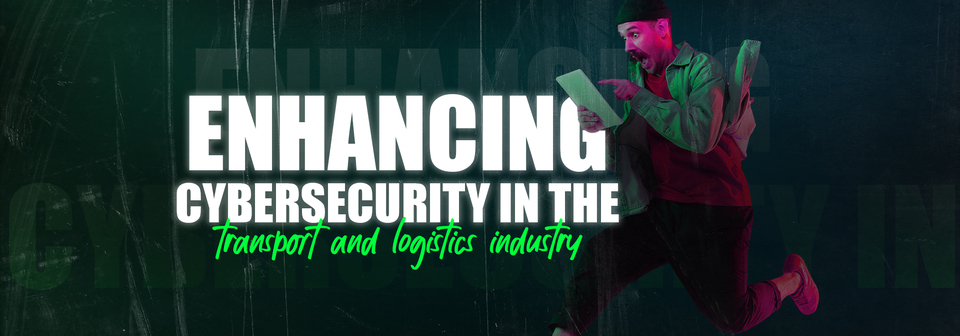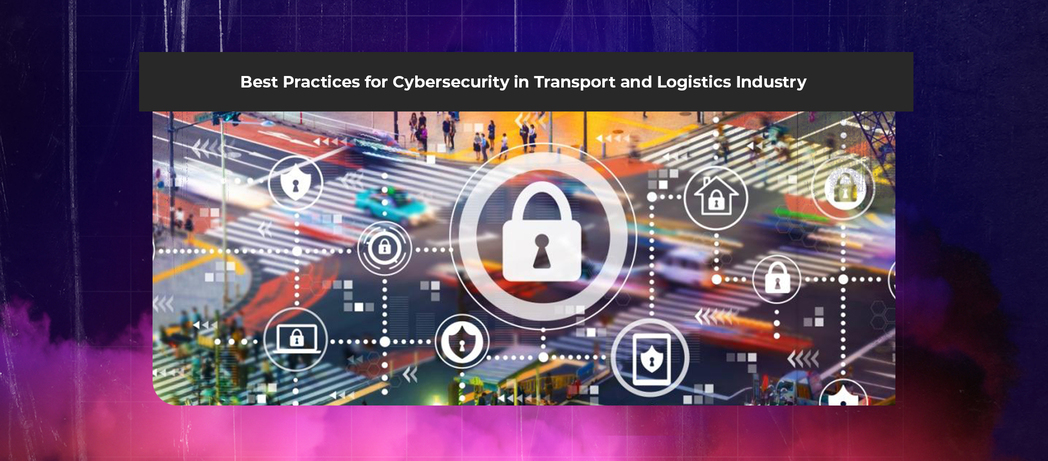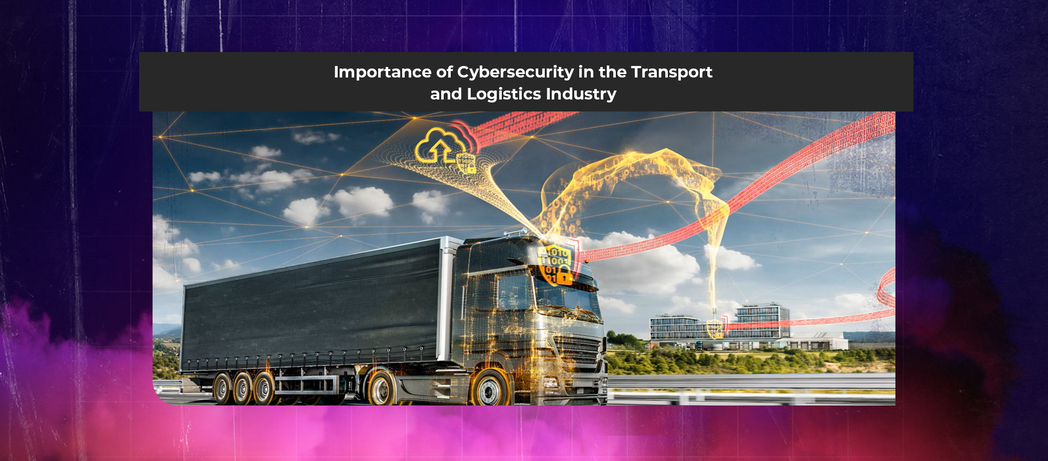

Enhancing Cybersecurity in the Transport and Logistics Industry
The transport and logistics industry plays a vital role in the global economy, enabling the movement of goods and services across the world. With the rise of technology and digitalization, the industry has become increasingly reliant on digital systems, such as connected vehicles, smart warehouses, and automated supply chains. However, this increased reliance on technology has also made the industry vulnerable to cybersecurity threats. Cybersecurity in the transport and logistics industry is a critical issue that affects not only the industry but also the safety and security of the general public. A cyber attack on a transportation system or logistics network can cause significant disruptions to the supply chain, lead to financial losses, and even put people’s lives at risk.
PeoplActive is an ISO 27001:2013 certified leading tech hiring platform. By utilizing an exclusive network of 4000+ Silicon Valley calibre tech talent specialized in 100+ in-demand IT skills, it was pretty easy for businesses to hire game-changing engineers and developers in just 48 hours. So, if you want to accelerate your business, schedule a quick call with our experts now.
In this blog, we will explore the cybersecurity challenges faced by the transport and logistics industry, the impact of cyber attacks, and the measures that can be taken to mitigate the risks. By the end of this blog, readers will gain a better understanding of the importance of cybersecurity in the transport and logistics industry and the steps needed to secure this critical sector.
[ez-toc]
Importance of Cybersecurity in the Transport and Logistics Industry
The transport and logistics industry is highly vulnerable to cyber threats due to its reliance on technology. To control the supply chain, trace shipments, and guarantee on-time delivery, the industry uses a variety of digital systems, including GPS, EDI, and TMS (transportation management systems).
Moreover, the industry collects and processes a large amount of sensitive data, such as customer information, supplier details, and financial data, making it an attractive target for cybercriminals. Cyber attacks on the transport and logistics industry can result in data breaches, theft of sensitive information, financial losses, and reputational damage.

Cyber Threats in Transport and Logistics
Phishing Attacks
Phishing attacks are a common cyber threat that can impact any industry, including transport and logistics. Phishing involves sending fraudulent emails that appear to be from a reputable source, such as a logistics provider or a shipping company, to trick the recipient into clicking on a malicious link or downloading malware.
Phishing attacks can lead to the theft of sensitive data, financial loss, and reputational damage. To mitigate this risk, organizations should implement cybersecurity awareness training for their employees and regularly remind them to be vigilant when it comes to suspicious emails.
Ransomware Attacks
Ransomware attacks involve the use of malware that encrypts an organization’s data, making it inaccessible until a ransom is paid to the attacker. This type of attack can be particularly damaging to the transport and logistics industry, where downtime can result in significant disruptions to operations.
To protect against ransomware attacks, organizations should ensure that they have robust backup systems in place, regularly test their backup and recovery processes, and implement security measures such as firewalls, antivirus software, and intrusion detection systems.
Data Breaches
Data breaches occur when an attacker gains unauthorized access to an organization’s systems or data. In the transport and logistics industry, data breaches can result in the theft of sensitive customer and company data, including financial information and trade secrets.
To prevent data breaches, organizations should implement multi-factor authentication, regularly update their software and security systems, and perform regular security audits to identify vulnerabilities.
IoT Device Compromise
The transport and logistics industry is increasingly reliant on IoT devices, such as sensors and tracking systems, to monitor and manage operations. However, these devices can be vulnerable to attack if they are not properly secured.
To protect against IoT device compromise, organizations should implement strong passwords and encryption, regularly update their software and firmware, and segment their networks to isolate IoT devices from other systems.
Supply Chain Attacks
Supply chain attacks involve targeting an organization’s suppliers or partners to gain access to their systems and data. This type of attack can be particularly damaging to the transport and logistics industry, where supply chain disruptions can have significant financial and operational consequences.
To prevent supply chain attacks, organizations should implement cybersecurity requirements for their suppliers and partners, regularly audit their supply chain for vulnerabilities, and establish a robust incident response plan.
Challenges the Transportation and Logistics Sector Faces
Remote Access
One of the biggest cybersecurity challenges faced by the transport and logistics industry is the need for remote access to data and systems. As employees are often required to work from multiple locations, including remote areas, they need access to data and systems from different devices. This can make it challenging to secure the network and devices against cyber threats.
Supply Chain Risks
The transport and logistics industry is heavily reliant on the supply chain, which involves the movement of goods and materials across multiple entities, including suppliers, manufacturers, distributors, and retailers. This creates a complex network of entities, which increases the risk of cyber threats, as attackers can target any point in the supply chain.
IoT and OT Devices
The transport and logistics industry relies heavily on IoT and OT devices, such as sensors, GPS trackers, and automated control systems, to improve efficiency and visibility. However, these devices are often poorly secured and can be easily hacked, leading to data breaches and other cyber threats.
Human Error
Human error is one of the most common causes of cybersecurity breaches in the transport and logistics industry. Employees may accidentally download malware or fall for phishing scams, which can compromise the security of the network and devices.
Also Read: Approaches In Network Security for Businesses
Best Practices for Cybersecurity in Transport and Logistics Industry
To stay protected against cyber threats, transport, and logistics organizations need to implement the following best practices:
- Employee Awareness and Training: Educate employees about the importance of cybersecurity and provide regular training to help them recognize and respond to cyber threats.
- Develop a Cybersecurity Policy: Develop a comprehensive cybersecurity policy that outlines the organization’s security measures, protocols, and procedures.
- Network Segmentation: Segment networks and systems limit access to sensitive information and prevent lateral movement by attackers.
- Regular Vulnerability Assessments: Conduct regular vulnerability assessments and penetration testing to identify weaknesses and vulnerabilities in the system.
- Implement Access Controls: Implement access controls, such as strong passwords, two-factor authentication, and privilege management, to prevent unauthorized access to sensitive data.
- Incident Response Plan: Develop an incident response plan that outlines the steps to be taken in the event of a cyber attack, including procedures for notifying relevant stakeholders and authorities.
- Third-party Vendor Management: Establish robust vendor management procedures to ensure that third-party vendors and suppliers meet the same cybersecurity standards as the organization.

Final Thoughts
PeoplActive can provide significant assistance in enhancing cybersecurity for the transport and logistics industry. Given the industry’s heavy reliance on technology and communication systems, it is vulnerable to cyber threats such as data breaches, ransomware attacks, and other cyber threats. We can help by offering comprehensive cybersecurity solutions that include threat monitoring, vulnerability assessments, and incident response planning. Additionally, PeoplActive can assist in implementing security measures such as data encryption, multi-factor authentication, and network segmentation. With PeoplActive, companies in the transport and logistics industry can improve their cybersecurity posture, safeguard their critical assets and information, and minimize the risks of cyber attacks. Ultimately, this can lead to increased operational resilience, customer trust, and business continuity.














